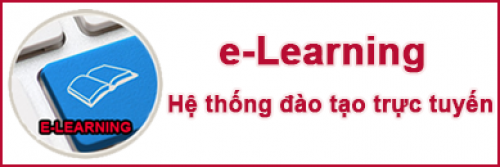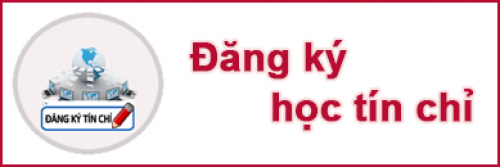Tên luận án: “Đặc điểm dịch tễ tăng huyết áp ở người Nùng trưởng thành tại tỉnh Thái Nguyên và hiệu quả một số giải pháp can thiệp”
Chuyên ngành: Vệ sinh xã hội học và Tổ chức y tế
Mã số: 62.72.01.64
Người hướng dẫn khoa học:1. PGS.TS. Dương Hồng Thái;2. TS. Trịnh Văn Hùng.
Đơn vị đào tạo: Trường Đại học Y – Dược
Cơ sở đào tạo: Tải goo88
NHỮNG KẾT QUẢ MỚI CỦA LUẬN ÁN
1. Tỷ lệ tăng huyết áp ở người Nùng trưởng thành (25–64 tuổi) tại tỉnh Thái Nguyên: Tỷ lệ tăng huyết áp chung là 18,7%, trong đó tăng huyết áp độ I là 70,%; độ II là 23,4%; độ III là 6,6%. Phân bố tăng huyết áp: 30,6% lứa tuổi 55-64, 20,4% nam giới, 16,9% nữ giới; 32,0% công chức viên chức, 20,2% trình độ ≤ tiểu học.
2. Một số yếu tố nguy cơ tăng huyết áp ở người Nùng trưởng thành (25- 64 tuổi) tại tỉnh Thái Nguyên: Một số nguy cơ chung như tuổi cao, giới nam, trình độ học vấn thấp, không làm nông nghiệp, không có phương tiện truyền thông, tiền sử gia đình có người bị tăng huyết áp, ít tập luyện, tâm lý lo âu căng thẳng, kinh tế gia đình khó khăn, hộ nghèo; kiến thức, thái độ, thực hành về dự phòng tăng huyết áp chưa tốt. Người Nùng có những yếu tố nguy cơ cao như thói quen uống nhiều rượu OR=2,04 (1,28-3,25), ăn mặn OR=4,2 (2,46 – 7,21), nước chấm mặn OR = 1,59 (1,03 – 2,47), thích ăn nhiều mỡ OR=8,8 (5,4-14,4), ăn nhiều thức ăn xào, rán OR = 1,53 (1,01 – 2,31), hút nhiều thuốc lá OR=2,19 (1,33–3,64).
3. Hiệu quả một số giải pháp can thiệp phòng chống tăng huyết áp ở người Nùng trưởng thành tại xã Văn Hán, huyện Đồng Hỷ, tỉnh Thái Nguyên:
Các chỉ số hiệu quả can thiệp thu được kết quả như sau: kiến thức tốt đạt 268,5%, thái độ tốt đạt 46,9%, thực hành tốt tăng lên nhất là hạn chế ăn mỡ động vật (36,5%), đo huyết áp thường xuyên (25,0%) ở xã can thiệp (P<0,05). Trong khi đó sự thay đổi ở xã Tân Long (đối chứng) chưa rõ rệt (p>0,05). Hiệu quả can thiệp đối với thực hành tốt về dự phòng THA là 20,0%, can thiệp những nội dung thực hành chưa tốt đạt thực hành tốt hiệu quả là 37,0%. Đối với quản lý người tăng huyết áp tại bệnh viện (446,2%), tiếp theo là quản lý tại nhà (379,1%), thấp nhất là hiệu quả phát hiện tăng huyết áp (11,1%); Hiệu quả đối với chỉ số tai biến mạch máu não (55,2%), tiếp đến là tăng huyết áp giai đoạn II (34,5%).
Giải pháp can thiệp đạt hiệu quả cao, có ý nghĩa, dễ thực hiện trong phòng chống tăng huyết áp cho người Nùng, khả năng thực hiện cũng như duy trì cao và được cộng đồng chấp nhận.
CÁC ỨNG DỤNG, KHẢ NĂNG ỨNG DỤNG TRONG THỰC TIỄN, NHỮNG VẤN ĐỀ CÒN BỎ NGỎ CẦN TIẾP TỤC NGHIÊN CỨU
1. Các ứng dụng và khả năng ứng dụng:
Giải pháp can thiệp cải thiện kiến thức, thái độ, thực hành về phòng chống tăng huyết áp và quản lý, tư vấn và điều trị tăng huyết áp ở người dân tộc Nùng cũng như các dân tộc thiểu số và ở cộng đồng.
2. Những vấn đề còn bỏ ngỏ cần tiếp tục nghiên cứu:
Phối hợp các giải pháp để xây dựng một mô hình can thiệp bền vững về dự phòng, quản lý, điều trị tăng huyết áp ở cộng đồng người dân tộc thiểu số thuộc vùng sâu, vùng xa, vùng khó khăn, nhằm giảm tỷ lệ mắc, tỷ lệ biến chứng và tử vong nguyên nhân do tăng huyết áp tại cộng đồng.
INFORMATION OF DOCTORAL DISSERTATION PhD.
Candidate: Chu Hong Thang
Title of dissertion: “Epidemiological characteristics of hypertension in Nung minority adults in Thai Nguyen province and efficacy of interventions”
Speciality: Social Hygiene and Health Organization
Code number: 62.72.01.64
PhD. Candidate: Chu Hong Thang
Scientific Supervisors:
1. Assoc Prof. PhD Duong Hong Thai
2. PhD Trinh Van Hung
Training Institution: Thai Nguyen University of Medicine &Pharmacy
NEW CONTRIBUTIONS OF THE DISSERTATION
1) The situation of hypertension in the mature Nung (aged from 25-64 years ) in Thai Nguyen: The overall prevalence rate of hypertension was 18.7% l, including Grade I hypertension was 70%; Grade II was 23.4%; Grade III was 6.6%. Distribution of hypertension: 30.6% in age group of 55-64years, 20.4% in male, 16.9% in female; 32.0% in civil servants and employees, 20.2% in ≤ primary level.
2) Some risk factors for hypertension in the mature Nung (aged from 25-64 years ) in Thai Nguyen: Some general risks such as old age, male gender, low educational level, not working in agriculture, no media, family history with members with hypertension, physical inactivity, psychology, poverty, not good at knowledge, attitude and practice on prevention of hypertension.The Nung had high risk factors such as alcohol consumption habits (OR = 2.04 (95% CI: 1:28 to 3:25), eating salty (OR = 4.2 (95%CI: 2:46 - 7:21), salt sauce (OR = 1.59 (95%CI: 1:03 to 2:47), to eat a lot of fat (OR = 8.8 (95%CI:5.4-14.4), eat fried foods, fried (OR = 1.53 (95%CI: 1:01 - 2:31), smoking more cigarettes (OR = 2.19 (95%CI: 1.33-3.64).
3) The effectiveness of interventions to prevent hypertension in the mature Nung at Van Han Commune in Dong Hy district, Thai Nguyen province:
- The effectiveness of interventions obtained the following results: The effectiveness for a good knowledge achieved 268.5%, reaching 46.9% for a good attitude achieved 46.9%,increased good practice, especially limited animal fat (36.5%), regular measurement of blood pressure (25%) in the intervention commune. Meanwhile, changes in Tan Long (the control) were not significantly (p> 0.05). The effectiveness of intervention for a good practice on prevention of hypertension was 20.0%, the effectiveness of intervention for a poor practice on prevention of hypertension achieved 37.0%. For the management of patients with hypertension in the hospital, the effectiveness of intervention was 446.2%, followed by the management of patients with hypertension at home was 379.1%, The lowest effectiveness was to detect hypertension(11.1%); The effectiveness for CVA index was 55.2%,followed by hypertension in stage II (34.5%).
- A general opinion of the community was: The solutions of intervention were highly effective, meaningful, easy to implement in the prevention of hypertension for the Nung, the ability to perform as well as maintaining highly and easily accepted by community.
PRACTICAL APPLICABILITY AND THE NEEDES FOR FURTHES STUDIES
1. Applications and Practical applicability:
Interventions improved knowledge, attitude, practice in hypertension prevention and management, counseling and treatment of hypertension in Nung minority people as well as ethnic minorities and community.
2. Opening issues for further studies:
Coordinating solutions to build a sustainable intervention model for prevention, management and treatment of hypertension in the community of ethnic minority areas, remote and disadvantaged areas, to reduce the rate of disease, rates of complication and mortality caused by hypertension in the community.








